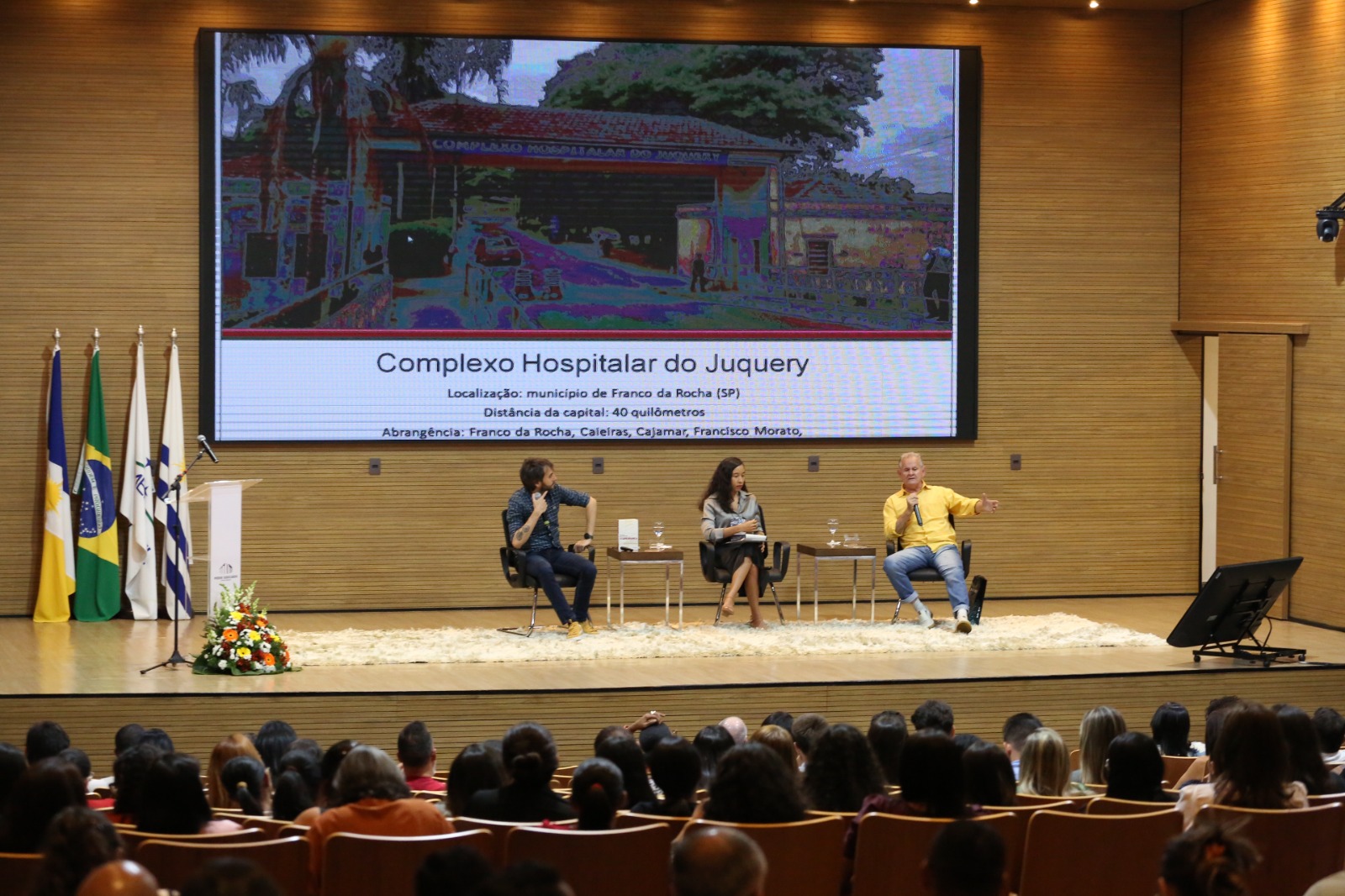
Head shaved, teeth knocked out, uniform. It was in this condition that Walter Farias saw his identity lost and became one of many when he left his job as a nursing assistant to take on the role of patient at the Juquery Psychiatric Complex, in the city of Franco da Rocha (SP), around 50 km from the capital of São Paulo.
People think that madness is a very difficult thing to happen and it's not. If you can't sleep because of some problem that you don't have someone to talk to or can't solve, you don't have a psychologist and you're already on that fine line between reason and madness, you suffer. And when you cross that fine line, that's it,” said Walter Farias, who went from white coat to social invisibility.
The speech above is part of the book: “The White coat: from an employee to a patient at one of the largest psychiatric hospitals of Brazil”, by journalist Daniel Navarro Sonim, co-authored by Walter Farias. The two presented this story at the opening of the discussions on anti-asylum policy on Wednesday afternoon (August 28th).
During his lecture, “Internment in the ‘Judicial Madhouse’: health treatment or intensification of illness?”, Sonim stressed that we need to get out of the bubble and value exchanges. “We've been on the road for 10 years at a great time of exchange. We need to get out of the bubble and enter other spaces to get the mental institution out of the minds of people, because we believe that many things can be solved by looking at others and not excluding them,” he described the meeting, opening the afternoon of discussions on anti-asylum policy.
The lecture was part of the program for the Initial Training of Professionals for the Implementation of the Anti-Asylum Policy in the Justice System in the State of Tocantins. An initiative of the Judiciary of the State of Tocantins, through the Superior School of the Judges of the State of Tocantins (Esmat), in partnership with the Federal University of the State of Tocantins (UFT).
White coat
The whole story of Walter Farias is told by writer and journalist Daniel Navarro Sonim. He is also the author of “Ashes of Juquery: the horrors of the largest psychiatric hospital of Brazil”. Known as “white coat”, by the reference to the lab coat, the former employee of the Complex arrived at Juquery in 1972, at the age of 19, to look after bedridden patients at the Psychiatric Hospital and saw his mental sanity shaken when he was transferred to the Judicial Asylum of the Complex, when he started living with patients who had committed crimes, some of them aggressive. Hence the need to have his teeth extracted, “it was the treatment of the time, without anesthesia or anything, to prevent the patients from biting the staff,” says Farias. 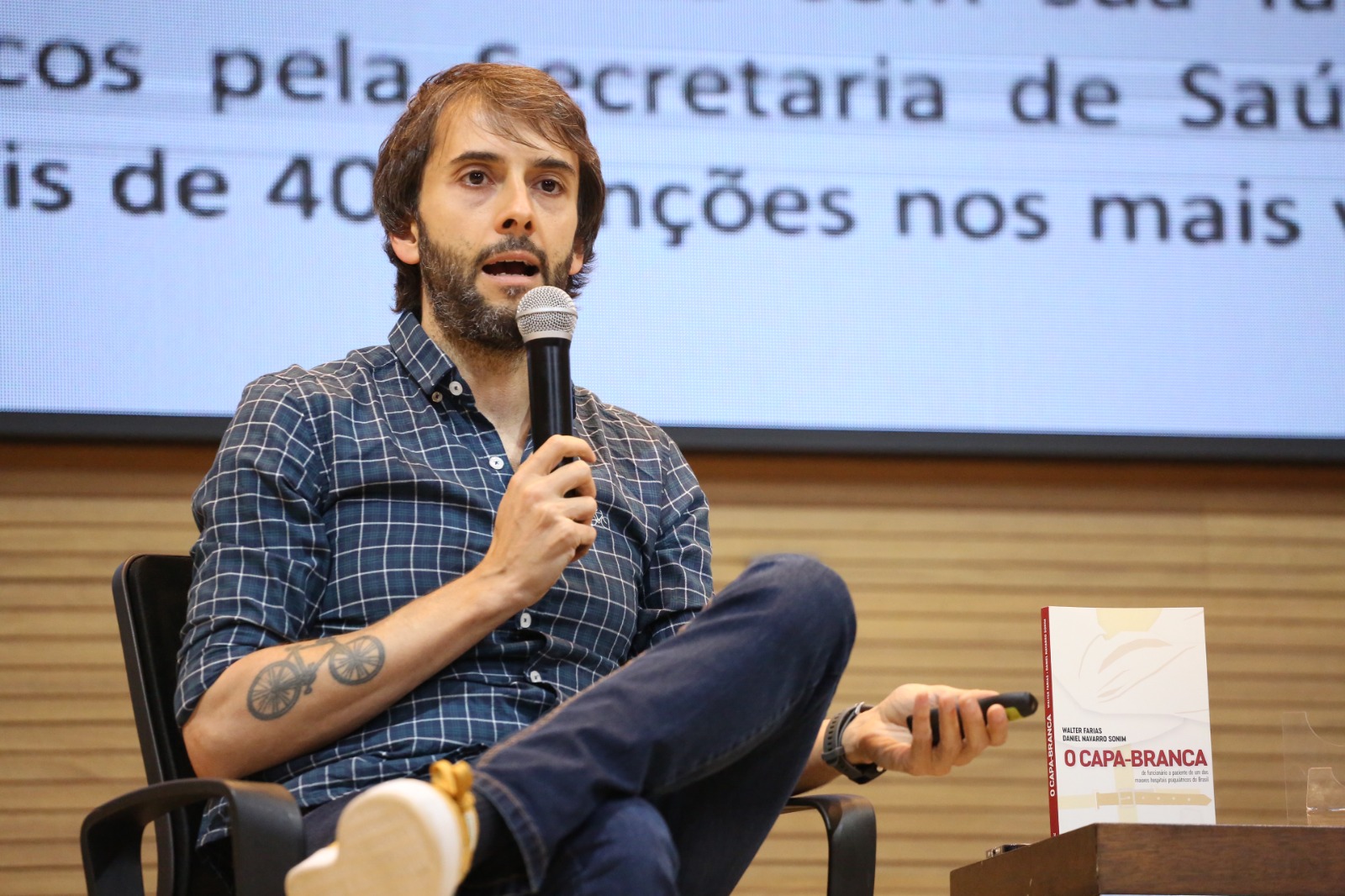
“When I say that we have to get the madhouse out of the minds of people, there are two things that are inside this madhouse: social hygienism, which is to exclude those who are different and send them away, and eugenics itself, taking someone who has a characteristic that we don't agree with and sending them away so that they don't mix with those who are interesting,” said the journalist.
Sharing his experience between the fine line of mental sanity, Walter Farias reflected on the perceptions he had in a mental institution. “I started to feel that my health wasn't good when I was excluded from the other employees. Because there were 5,600 employees, all in my city, and I practically knew everyone. But wherever they transferred me, to any colony, because there are five cities, each with a colony, outside the central hospital, when they transferred me to a place like that, they sent my employee file, saying that I was a bad employee. So you got there, there was no atmosphere, I was the bad apple. Outside we had fun, got to know each other, went for walks together, but inside they wouldn't talk to me. Then I realized there was something wrong,” says Walter, explaining that the hospitalization lasted about a year and it was recommended by the psychiatrist of the institution.
Journalist Daniel Navarro explains that Walter didn't want to work in the Judicial Asylum and that's where his struggle began, both institutionally and mentally.
“Walter was transferred to work in this reality, with mentally ill patients who had also committed crimes. So he went from nursing assistant to jailer. And he asked to come back and work in the clinic and nobody listened. As a result, the very reality of jail undermined his sanity, until he had no choice but to go into hospital, in order to continue as a civil server because otherwise he would probably be dismissed, and then he began to experience everything that the others were experiencing, all the abandonment, the mistreatment, the very mischaracterization of a white coat for a patient, where everyone is the same as everyone else,” he explained.
Juquery Psychiatric Complex
Founded in 1898, the Juquery Psychiatric Complex was designed to house 800 patients and went on to serve 18,000 inmates, including people in conflict with the law with mental disorders. The Complex was closed in 2001 when it became home to the Professor André Teixeira Lima Psychiatric Treatment and Custody Hospital. The entire history of the Complex was also presented in the lecture.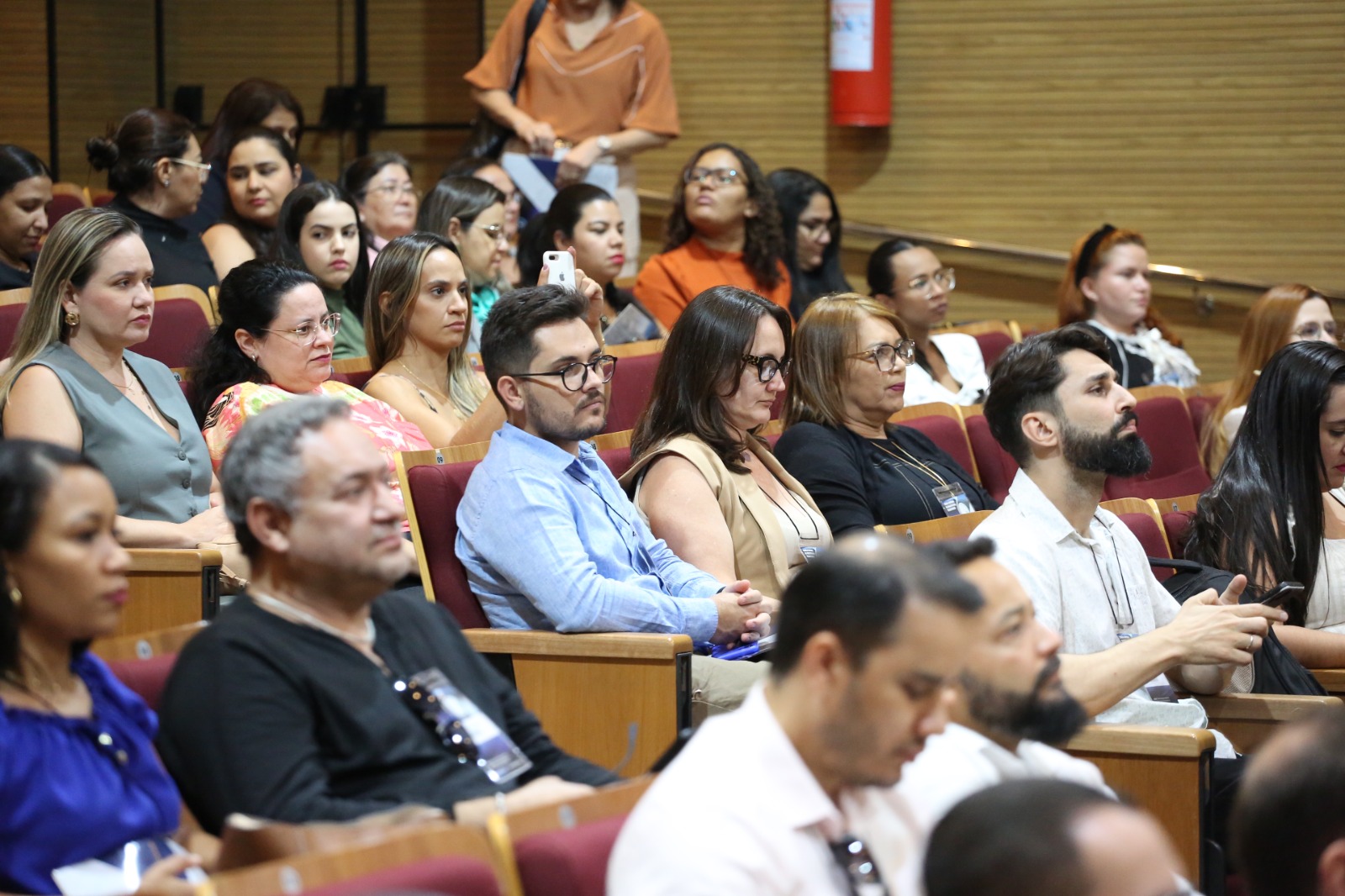
Judiciary of the state of tocantins in the vanguard
“I never believed in the anti-asylum struggle. The struggle exists in the heart of each and every one of you. There is no President, no council, no physical place. But here you are kick-starting this work. Congratulations,” said Walter Farias, praising the initiative of the Judiciary of the State of Tocantins in discussing the issue.
The purpose of the event is to train all the actors involved in the process of deinstitutionalizing mental patients in the State. The Anti-asylum Policy recommends joint action between several public institutions, with the creation of an Interinstitutional Working Group on Mental Health (GTI). In the State of Tocantins, it is made up of representatives from the Judiciary, the State Prosecution, the Public Defender's Office and the State and Municipal Executives, through the Health Departments.
Currently, of the 18 people with mental disorders in conflict with the law, 12 are in the city of Araguaína, four in the city of Cariri, one in the city of Colinas and another was transferred from the city of Arraias to Palmas. And the State has two therapeutic residences to receive deinstitutionalized prisoners, one in the city of Araguatins and the other in the city of Araguaína. The city of Palmas is in the process of being set up.
Training reflects on the theme
With the aim of providing moments of reflection and training on the subject of mental disorders, the anti-asylum struggle, and relevant legislation through lectures, the Initial Training of Professionals for the Implementation of the Anti-Asylum Policy in the Justice System of the State of Tocantins began on Wednesday morning (August 28th) and it continues until Friday (August 30th), in the auditorium of the Court of Justice of the State of Tocantins (TJTO).
Check out the full programming here
Read the opening article of the event.




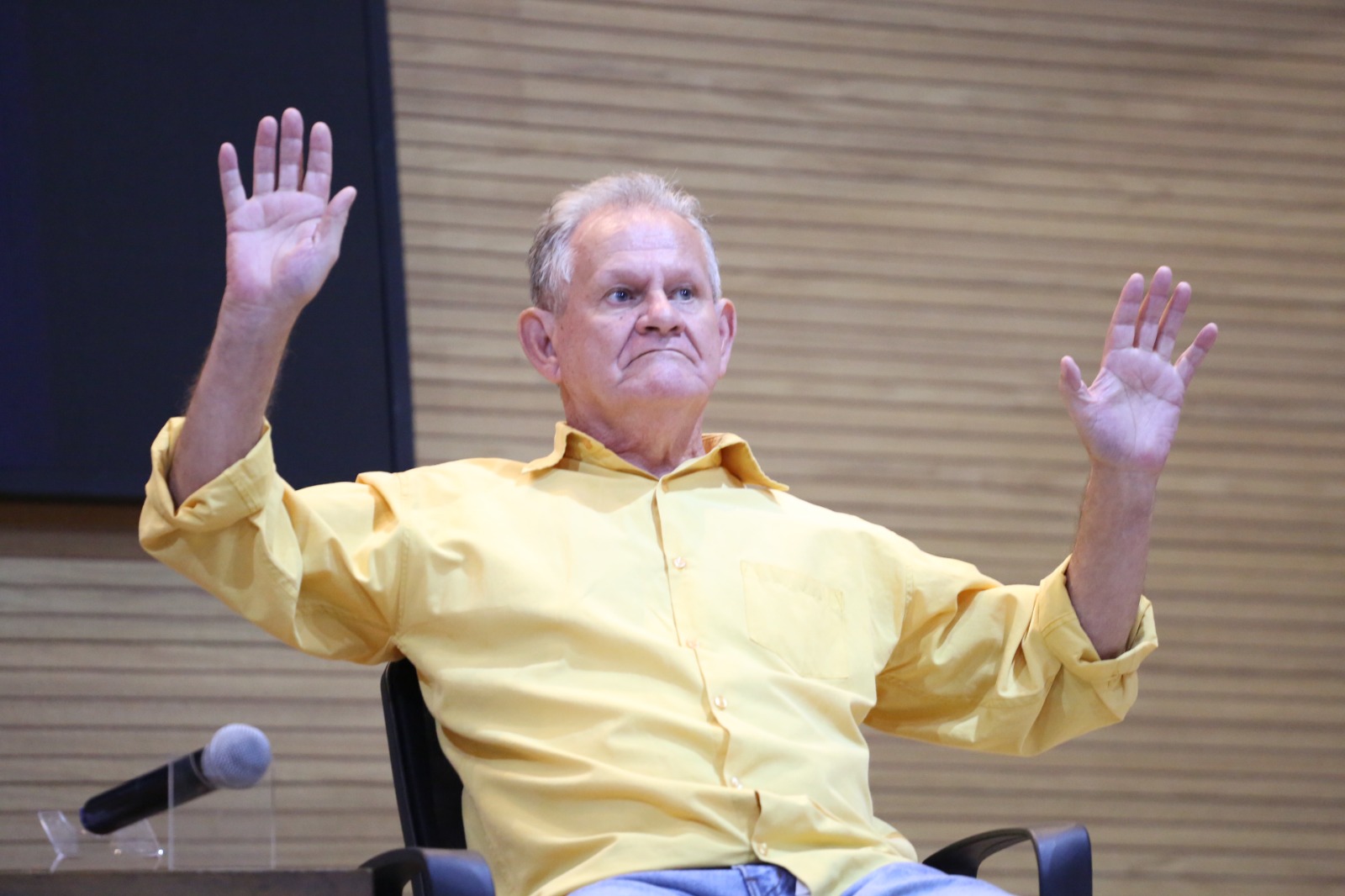



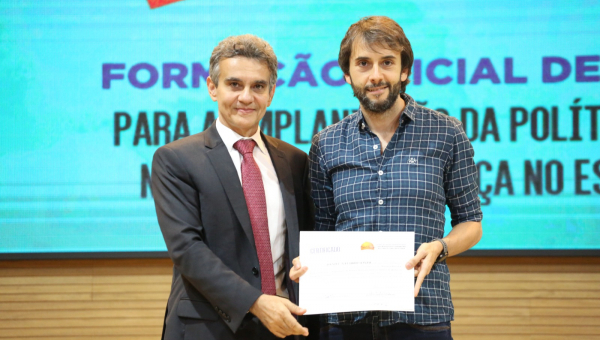

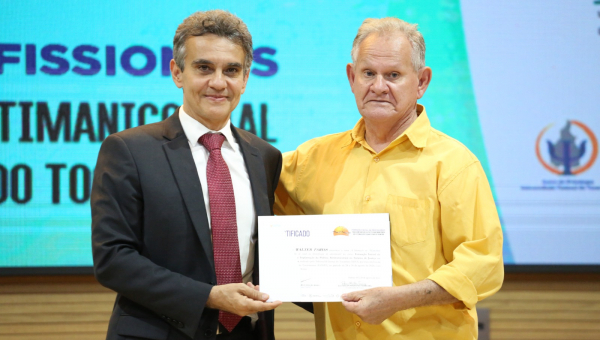
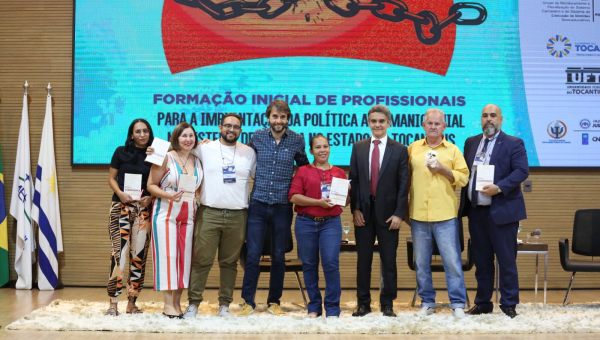
_thumbnail_thumbnail.jpeg)



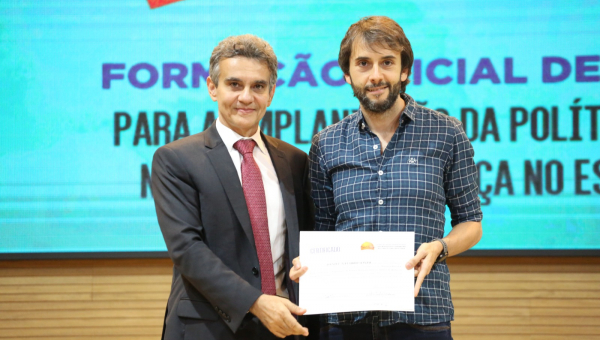

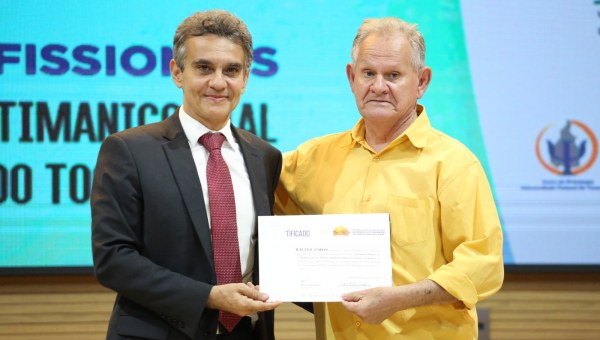
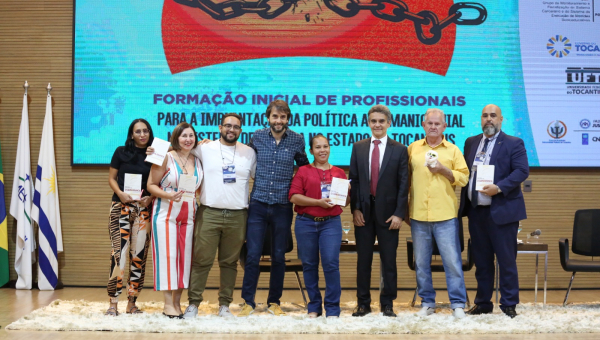
_thumbnail.jpeg)
